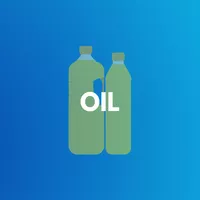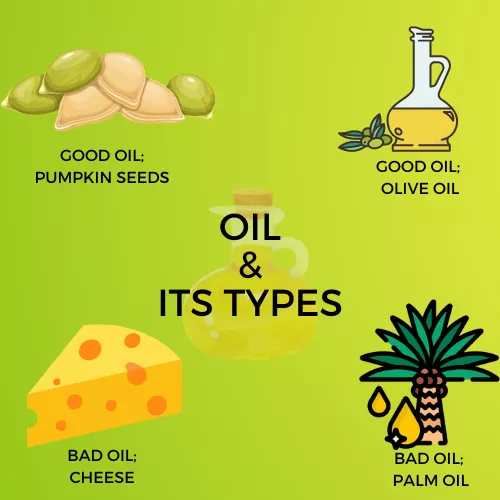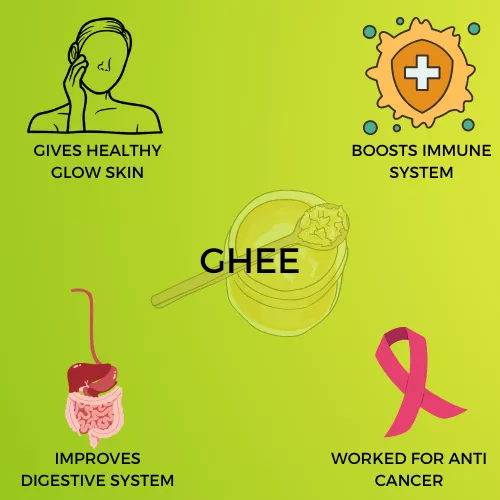Key Difference: Both words are derived from plants and animals and are used for cooking purposes. It is nothing but oil and ghee. Oil is made up of a combination of fats, while ghee is made up of entirely clarified butter fat. Ghee has a nutty flavour while oil is more neutral in taste. Ghee has a longer shelf life than oils because of stripped of water and milk solids, which can spoil and cause rancidity. You can learn the significant differences between the words Oil and Ghee in this article.
Good examples of the words “Oil and Ghee” are,
1. I used vegetable oil to fry the chicken.
2. I added a dollop of ghee to the rice.
OIL

Oil is a viscous liquid.
Oil refers to fats, which are viscous and combustible liquids used as fuel sources and for cooking for raw material production like chemicals and lubricants. It is known for its energy and nutrients and essential components for diet. When it is consumed in excess, it leads to weight gain and other health problems like increased cholesterol in our bodies. Oil is rich in saturated fats increases the risk of heart problems. Acrylamide and carcinogenic substances in processed oils are harmful compounds, so we have to intake them at a limit.
The Best Example of the word “Oil” is “Oil and water don’t mix.”
How do We Spell the Word Oil?
Spell / Pronunciation in which a word or particular language is spoken among people. The Oral representation of Oil is “Oyl.” It would help if you practised it slowly for the outcome of a perfect spell.
In Latin, the word Oil is pronounced as “oleum.” Likewise, there are many differences in the pronunciation of the word Oil in multiple languages. Below, you can know by hearing the audio of the word Oil.
Enunciation:
Syllabification is where we split the words into individual vowel sounds. A syllable should have at least one vowel in the word. We are going to see the syllable of the word Oil.
- Wondering if it has one syllable in it.
- It can be split as “OIL.”
How do We Pronounce “Oil”?
Using “Oil” in sentences:
- Oil is of two types Saturated oils and Unsaturated oils.
- Oil will not be mixed with water.
- We used coconut oil to prepare food.
- Soybean oil and cocoa butter are examples of seed oil.
- Oil is used as a transportation fuel.
GHEE

Ghee is rich in essential fatty acids.
Ghee is a form of butter fat that is a mixture of water and milk solids through a process of slow heating and straining. It means the pure heat clarified fat derived solely from milk or curd or from desi butter or from cream. It is a very popular product from ancient times, and it has a market demand all around South Asian cuisines. The potential adverse effects of ghee are increased bad cholesterol levels.
The Best example of the word “Ghee is rich in vitamins A, D, E, and K.
How do We Spell the Word Ghee?
The vocal representation of the word Ghee is “ghee.” It would help if you practiced it slowly for the outcome of a perfect spell. Below, you can know by hearing the audio of the word ghee.
Enunciation:
Syllabification refers to letters that hold together to make a single sound. So, for example, we will see the syllable of the word “Ghee” is one “GHEE.”
How do We Pronounce “Ghee”?
Using “Ghee” in sentences:
- Ghee is a type of clarified butter.
- Smith eats less ghee in his diet.
- High-fat ghee causes more diseases in humans.
- More intake of ghee brings digestive issues and heart attacks.
- In the medicinal field, ghee is considered a nourishing and healing food.
Similarities between Oil and Ghee
The title reveals the difference between Oil and Ghee. But, like, you want to know also similar things about the above two words. So come, let’s see below.
- Oil and Ghee are high in calories and fat, and they are both used as cooking mediums which add flavour to food. Both are derived from animal or plant sources.
- Oil and ghee have a high smoke point and are used as a flavour enhancer and can be stored for a long time, so both should be consumed in moderation.
Compare: OIL & GHEE
| OIL | GHEE | |
|---|---|---|
| DEFINITION | Oil is an important nutrient, it is called triglycerides, which is derived from plants and animals. It is a synthetic liquid used in foods. | Ghee is a type of clarified butter, The milk solids settle to the bottom and the remaining liquids is separated from the solids. |
| SYNONYMS | Essential oil, Mineral oil, Vegetable oil, Cooking oil. | Clarified butter, Drawn butter and Anhydrous butter fat. |
| ORIGIN YEAR | 13th Century | 1700-1100 BCE |
| DERIVED FROM | Extracted from Plants | Extracted from plants and animals. |
| TYPES | Vegetable oils Essential oils Fish oil Peanut oil Jojoba oil Castor oil Avocado oil Sesame oil Palm oil | Cow ghee Buffalo ghee Desi ghee Vegan ghee Herbal ghee Flavoured ghee |
| EXAMPLES | Canola oil is a versatile oil. Fish oil is rich in proteins and is used as a beauty product. Oils are liquid at room temperature. Henry prefers vegetable oil for cooking purposes. Peanut oil has good thermal stability. | I added a spoonful of ghee to the pan and made it to melt. Smith like to use ghee in all baking recipes. The chef drizzled a little bit of ghee into the dish for a glossy finish. I preferred to use cow ghee in my cooking rather than buffalo ghee. Vegan ghee is a better alternative for vegetarian people. |
Infographic Representation


Resources & References
Resources: Cambridge Dictionary (Oil & Ghee), Merriam-Webster (Oil & Ghee), Dictionary.com (Oil & Ghee)
Reference: Dictionary.Cambridge.org[1], Merriam-Webster. com[2], Merriam-Webster. com[3], Dictionary. com[4].
